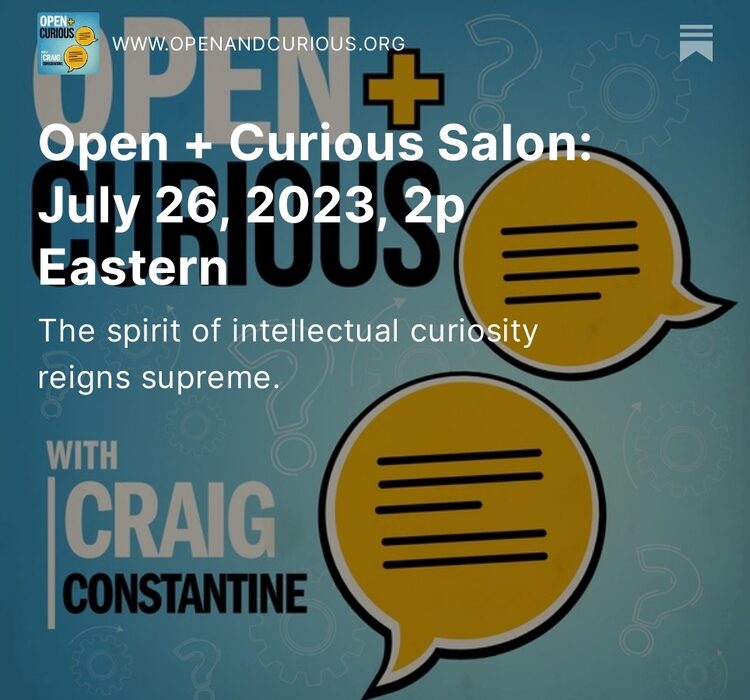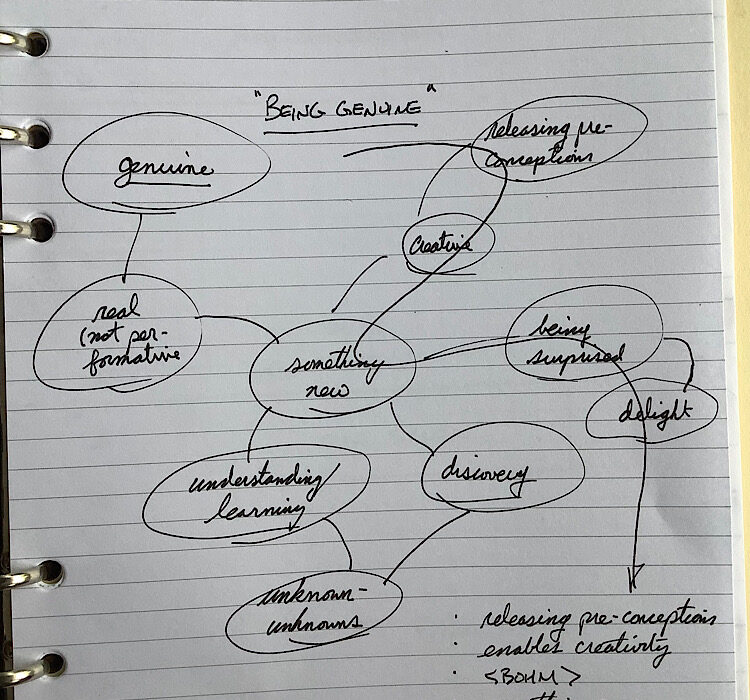How can you effectively and gracefully end a conversation while maintaining its value and mutual appreciation?
Understand the balance between leaving a conversation fulfilled and seeking more.
Craig and Jesse discuss the complexities of ending conversations, beginning with the idea that most conversations naturally conclude due to external factors like time constraints. Craig notes that in many casual interactions, such as those at events or in public spaces, the end is often dictated by circumstances rather than a conscious decision.
I know I didn’t even try to get everything [from a conversation] because I know I can’t get everything. So it’s somehow finding a balance between: “Okay, my cup is full. I should really move away and just revel in what I have.” Finding a balance between that, and just going to the well until the cup comes up empty. I think that’s probably the compass for how to find a good ending.
~ Craig Constantine (4:25)
They explore the notion that it can be beneficial to end conversations while they are still engaging, rather than waiting until all topics are exhausted. Craig shares his experiences from recording podcasts, where he finds it challenging to end on a high note, emphasizing the importance of planning and strategies for graceful conclusions.
We’re here looking for ways to make conversation more alive […]. I’ve adopted this strategy of, stop eating when I want to eat a little bit more. stop talking when I want to talk a little bit more. Stop training, moving around and exercising when I want to move a little bit more. So that I’m actually left in the wanting of it […]
~ Jesse Danger (5:13)
They also touch on the distinction between enjoyable and uncomfortable conversations. Jesse brings up the idea of stopping activities, such as talking or training, while still wanting more, to maintain a sense of aliveness and enthusiasm. The conversation shifts to practical strategies for ending conversations, including honesty about one’s need to leave and expressing appreciation for the interaction.
Jesse references Peter Block’s concept from the book “Community,” suggesting that when ending a conversation, participants can share what they gained from the interaction, fostering a sense of closure and mutual respect. This approach, they agree, can enhance the quality and impact of the conversation.
Takeaways
Ending conversations naturally — External factors often dictate the conclusion of casual interactions.
Ending on a high note — Beneficial to conclude conversations while they are still engaging.
Challenges in planned endings — Strategies and planning are crucial for graceful podcast conclusions.
Distinction between conversation types — Different approaches are needed for enjoyable and uncomfortable conversations.
Maintaining enthusiasm — Stopping activities while still wanting more helps preserve a sense of aliveness.
Practical strategies — Honesty about the need to leave and expressing appreciation can aid in ending conversations.
Concept of shared appreciation — Participants can share what they gained from the interaction to foster closure.
Spontaneity in conversation exits — Creative and spontaneous actions can make leaving a conversation smoother.
Balancing conversation engagement — Finding a balance between getting enough out of a conversation and not exhausting all topics.
Resources
Community by Peter Block — Discusses the importance of commitment and shared appreciation in group settings.
The concept of “single-serving friends” from the movie Fight Club — Refers to brief, context-specific interactions that end naturally.
ɕ
(Written with help from Chat-GPT.)

